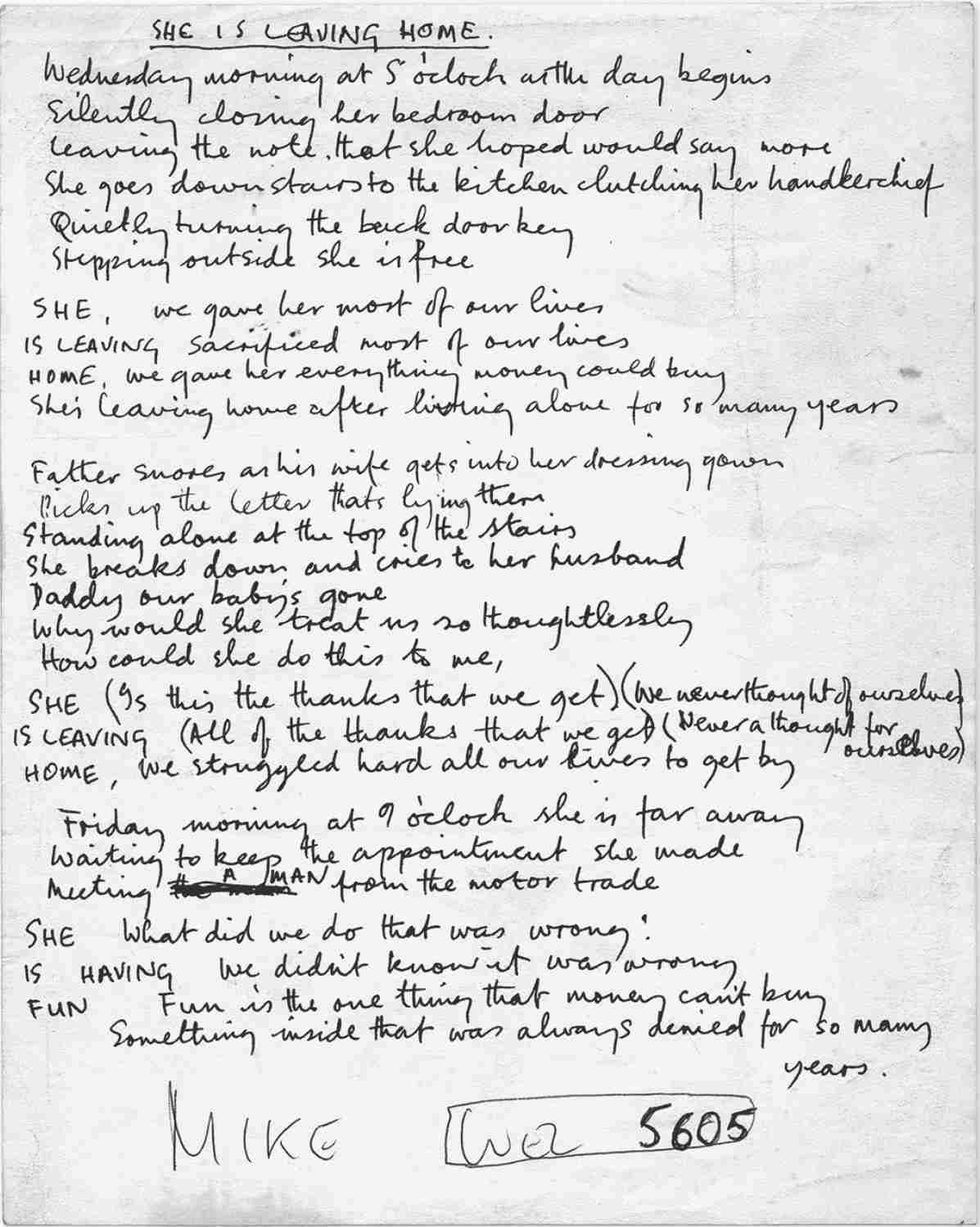OTHER THAN WEST SIDE STORY, JOHN HATED MUSICALS. West Side Story we went to see together – a touring production in Liverpool. We saw the film, of course, with that famous opening shot of New York from a helicopter. We liked that and thought it was ballsy enough for us. But John walked out on South Pacific – too corny, too prissy and sweet. Even though ‘Lennon and McCartney’ sounded like ‘Rodgers and Hammerstein’, it was pretty clear from early on that we were never going to be writing musicals.
We did, however, write story songs. This one is based somewhat on a newspaper report of a missing girl. The headline was something like ‘A-Level Girl Dumps Car and Vanishes’. So, I set out to imagine what might have happened, the sequence of events. The detail of leaving a note that she ‘hoped would say more’ is one of the strongest moments in the song. (Like many writers, I’m fascinated by what’s missing in a piece. I used to love how you’d be listening to the radio and you’d hear an audience laugh for no obvious reason. The comedian hadn’t made a joke, but maybe he’d pulled a funny face. You would never know exactly what he’d done.)
In addition to the newspaper report, I’m pretty sure another influence was The Wednesday Play. It was a weekly television play that often addressed ‘big’ social issues. It’s the kind of thing people would be discussing at the bus stop on Thursday morning. It was a very important part of the week. One of the most famous of these plays was Cathy Come Home, directed by Ken Loach. It’s a play about homelessness that a quarter of the UK population watched the night it was broadcast in November 1966.
When we recorded ‘She’s Leaving Home’ it was almost like a shooting script for The Wednesday Play. ‘Clutching her handkerchief / Quietly turning the backdoor key’. On one hand we have the narrator who’s describing the action (‘She’s leaving home’), and then there are a couple of people in the spotlight, a mini Greek chorus, who fade in and out (‘We gave her most of our lives’). There was a line in that style – ‘Is this all the thanks that we get?’ – which somehow didn’t make the final cut.
I realise now that you can easily imagine a ‘man from the motor trade’ showing up in a Philip Larkin poem with all those travelling salesmen. Is she meeting a man from the motor trade to buy a car or for a romantic liaison? It’s left wide open.
I’m not sure whether a song like this could be written nowadays. Funnily enough, a musical theatre setting is where this kind of story song gets written now. So, maybe Lennon and McCartney did write musicals after all.
